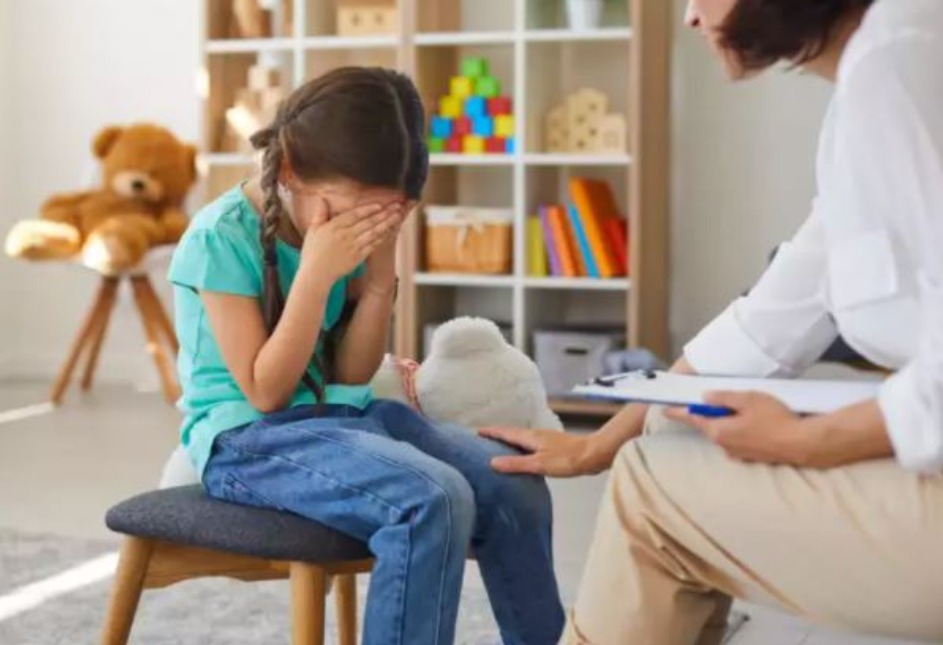Children in therapy might sound absurd to some…
…But it is an area that is less talked about and much needed.
With adults, there are so many ways they can express; they can even pinpoint what exactly they are feeling. However, with children, they might not even know what they are feeling or experiencing. They don't have the vocabulary or the tools to deal with the problems they are facing.
And it doesn't help when adults keep telling children, "You are still so young, you don't know anything. You will know better when you grow older." These kinds of expressions often invalidate what the child is feeling.
More than any of this though, a child will never willingly come up to an adult and say 'Hey, I think I need therapy or help or counseling'. Which is why it is important for the adults in the child's life to pay attention to them and be on the lookout for any of these warning signs.
1. Behavioural change
If you experience a sweep drift in your child's behaviour or change in habits like not eating properly, or not sleeping properly, you must not ignore it. It might be related to a sleeping issue or an eating disorder. Instead, address it and get to the root of it. It is also a matter of concern if your child acts out or frequently gets in trouble.
2. Loss of interest in school or extra-curricular activities
Did your child, who is usually the first one to sign up for all the extracurricular activities, stop attending those clubs? Did your child suddenly stop playing his favorite guitar or stop painting? Did your child, who always talked about school and loved going, suddenly lose interest in school? Is your child making excuses, trying to avoid going to school? From change in choices, to "children are children", there are many ways to justify these problems. And yes, there might not be something serious always, but chances are your child is having some trouble with someone at school or has faced something that has made him or her lose faith in himself or herself, and the child really needs someone to speak with.
3. Unusual anxiety and sadness
You might not know if your child is getting bullied or going through school stress, drama, grief, or any other situation because usually, children try to keep these things to themselves as they feel embarrassed. But you can always figure it out as these things usually lead to unusual anxiety, sadness, loneliness, excessive crying or worrying. Look out for these signs and seek help.
4. Getting in fights
Torn shirt? Ink marks on dresses? Disheveled hair, bruising, broken bag or other damaged school items? These are all more overt signs that your child is facing some trouble at school, either because of someone else or because of something that is troubling internally to the child.
5. Trying to isolate most times
Isolating from peers, surroundings and sometimes maybe from the parents too is always a sign that something's not right. If you can't figure out the reason for their isolation by yourself, don't hesitate to refer to a therapist.
6. Regular nightmares
Is your child waking up screaming or sweating every single night? Do you find your child sleeping in your bed in the middle of the night? Is your child sleep-walking, sleep talking? All these are ways and outlets for the problems the child is facing.
7. Troubling artwork
Art can speak volumes. Either through disturbing poetry, storytelling or paintings, it is possible your child is trying to express what he/she doesn't feel like sharing directly. Pay attention to this closely.
8. Mentioning death frequently
Children are curious about the topic of life and death. But always keep a check on what's the tone of your child, in what context he/she's trying to collect the information, how often is he/she talking about it. If your child mentions a lot about suicide or murder, you must take the help of a therapist.
9. Excessive repetition of routines
Is your child constantly washing hands, retracing steps, checking homework a hundred times repeatedly? Such repetition of routines at an early age could trigger deep-seated obsessive-compulsive behaviors.
10. Health complaints
Stress, depression also lead to health issues most times, like headaches, stomachaches, panic attacks, etc. You must always refer to a doctor first, but if it does not get sorted, a door to a therapist should be your next stop.
11. Over-the-top preoccupation with appearances
Is your child suddenly preoccupied with his or her appearances? Is that all s/he can think or worry about? When a parent tells a child not to worry over something as little as how you look, the child feels that the parent can never understand them. For a child, that is not a little issue. Helping your child come to terms with his or her appearances is very important to build their confidence and self-image. And doing this early in life can only be helpful in the long run.
12. More overt signs
Stealing, complains from other parents and teachers, violence, truancy, are some other more overt signs that your child's mind is troubled and that s/he needs professional help.
This list contains just some more commonly observed signs among children and might not include the behavior your child is showing. Keeping a watchful eye and observing are the best solutions to this.


No comments:
Post a Comment